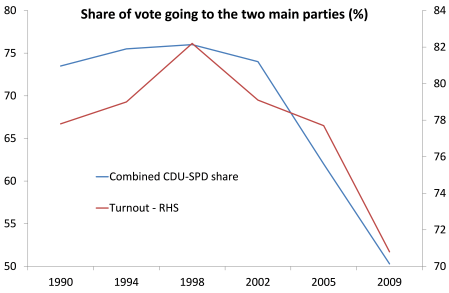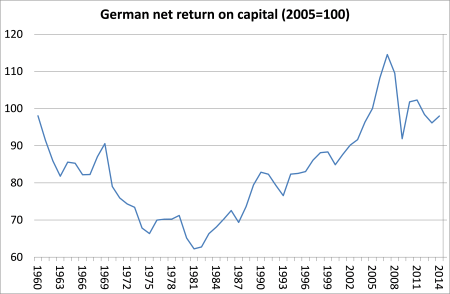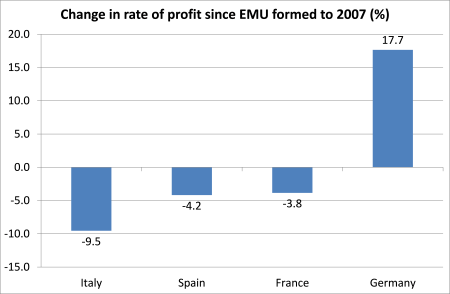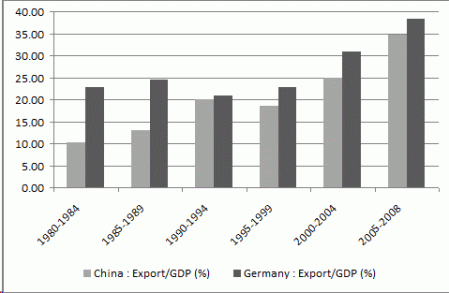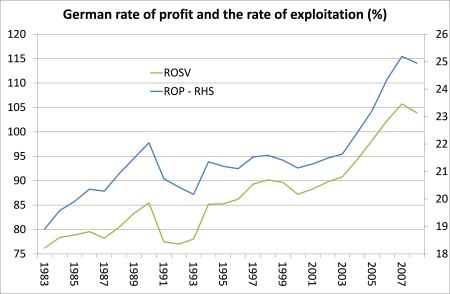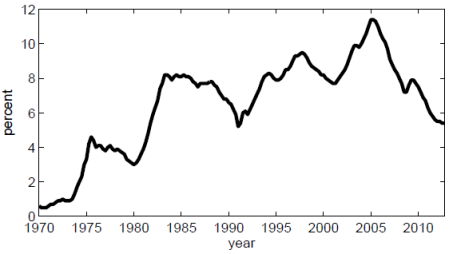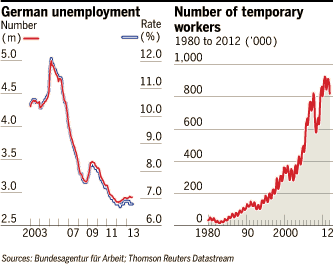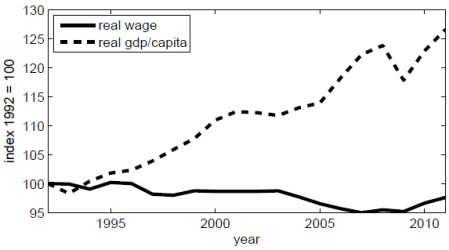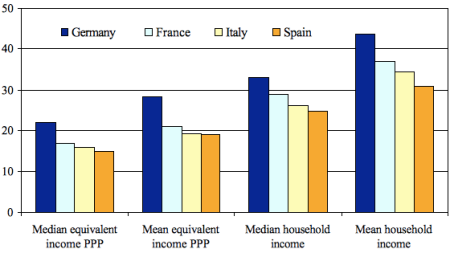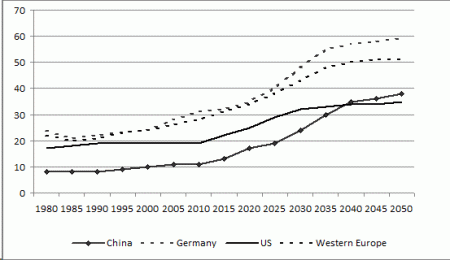 |
| source: CNN |
Afscme Local 444, retired
According to the most recent US Census Bureau's report released September 17th., as US GDP has tripled, American men working full time are earning less in real terms than we were in 1973. The huge gains in this period "....have gone mostly to the people at the top" Bloomberg BusinessWeek reports in this weeks issue. I think we all agree that "real terms" are the only terms that matter don't we?
"We've had 40 years of stagnation." says Sheldon Danziger who heads the Russell Sage Foundation that funds research about living standards. The poverty rate has also jumped almost three percent since 2007 and as should be expected, the young are the hardest hit. Close to 22% of children live in poverty in the United States compared to 15% nationally the Census report adds. The situation can only get worse as the war against workers and the poor continues. The effects are clear, monthly food-stamp use has risen 18% over the past four years according to Bloomberg Business Week and as the Republicans in Congress are pushing to cut spending on nutrition programs by a further $40 billion things will only get worse; "If the full-time, full-year male workers aren't benefiting from economic growth, why should we expect the poor to be." says Danziger.
Robert Gordon, an economics professor at Northwestern University tells BW that the US is "in for a long period of stagnation.". Michael Feroli of JPMorgan Chase points out that the capitalists are simply not investing in what he calls the "..innovation needed to boost efficiency." We have pointed out many times that workers, the poor and the middle class must cast aside this propaganda nonsense that there is no money in US society. The corporations are sitting on trillions of dollars that they refuse to invest in the economy or in social infrastructure. Let's not allow the propaganda to unduly influence what we know in our gut--- that the money is there. I will continue to remind readers again and again, that by their own estimates, sections of the capitalist class have stashed away as much as $32 trillion dollars in offshore accounts to avoid paying taxes, this is equal to the GDP of both Japan and the US combined. Then there is the trillions wasted on predatory wars fought on behalf of the 1% and their corporations.
Furthermore, as I stated in a previous commentary, Just 20Americans made as much from their 2012 investments as the entire SNAP budget for 47 million people. SNAP is the acronym for the Supplemental Nutritional Assistance Program that provides food and assistance to the millions of people, and soon to be millions more as the 1% forces the US working class on rations in order to make us more competitive with our brothers and sisters throughout the world and to pay for their economic crisis. Politicians in Congress yesterday were boasting about how they will occupy the legislature floor until they could no longer stand in order to defeat Obamacare (this is not to defend Obamacare) but three trillion on the Iraq war is OK and the poor and low waged need a $40 billion trim, about half of what one human being, Bill Gates is worth.
I have felt the effects of these attacks on workers in my own neighborhood where petty theft has been on the increase, car and house break ins are occurring more frequently. The local news reported last night that in the Rockridge area of Oakland, a fairly affluent middle class (Using the US definition by income) community, a group of commuters waiting in line for car pick ups were robbed at gunpoint. People wait in these lines for other commuters to pick them up so they can use the commuter lanes. People stand there with computers, I phones, belongings etc.
The robbery has shocked the community as robberies have risen over 40% in the last year. The perpetrators were black youth from what I could gather from reports this morning. We will read all the racist laced Internet chatter about the need to get tough on crime and how we all need to be armed etc. When I ran for Oakland City Council in 1996 I had a public debate up in Rockridge and this was a problem then, people coming up from West Oakland and breaking in to care stealing radios, CD players and such. One of my campaign issues was for a $10 an hour minimum wage and my answer to the concerns residents had was that they are not the 1%, they are mostly middle class professional types, not walled off from the rest of society and the best best way to eliminate the crime was to openly and organizationally support the demand for jobs and a $10 an hour minimum wage. In other words, to show solidarity with other humans, victims of market forces.
I am not advocating that those less fortunate and more desperate among us are right to rob people in bus lines or each other in our communities, but people get desperate. You can spend a lot of time in prison for robbing someone at gunpoint and if things get crazy and someone gets shot you many never see life outside of prison walls again. The US Gulag is a notorious hellhole and hundreds of thousands of young black men occupy it. People have to eat. The US is the worst of the advanced capitalist economies to be poor in. If you have no money here, you're "on your own baby."; Vietnam Vet---too bad, get a job, the flag waving is only for when they want our youth to go fight their wars, when they return they're a burden on profit making.
So I appeal especially to working class (wage earners) readers of this blog, those of us who have had more fortunate circumstances liking keeping our homes and jobs over the past period not to fall in to the trap set for us of blaming the victims, of blaming our class brothers and sisters for circumstances they find themselves in that are overwhelmingly not of their own creation. Poverty, racism, homelessness, petty crime, these are all market driven. It is the same with small business, and by that I mean community mom and pops who live in a community, are part of it and contribute to it. Rather than oppose a $20 an hour minimum wage you too should support it openly. Most workers recognize that under the present circumstances a small store owner, the local plumber or coffeehouse owner can't pay that; they can often rarely contribute to benefits as big absentee landlords jack up rents. But by openly declaring support for such a minimum wage ($15 is gaining some momentum here at the moment) community business owners can build solidarity and links with the workers' movement and as this movement gains strength and momentum including standing it's own candidates for political office independent of the two Wall Street parties, a united movement of workers, the dispossessed, the poor and the undocumented who are among the most exploited of us, can in turn help free these small proprietors from the clutches of the corporations, insurance companies and other forces that bleed them dry. It is ridiculous for example that a community business is expected to pay for its one, two or three employees' health care.
For the workers movement it is important while we fight for the interests of workers, to appeal to this layer of community businesses between these two great classes in society and win them to our side. If we do not, the 1% will win them to theirs. We cannot drive back the capitalist offensive, let alone rid ourselves of it without a united working class movement and we can't build a united working class movement without fighting racism, sexism, and all forms of discrimination that they use to divide us.
The heads of organized Labor are also criminally negligent in that they have the resources and ability to turn this situation around but have completely capitulated to the capitalist offensive and regurgitate their ideological justification for it. We will see some turmoil in these organizations as well at some point.
In my previous commentary I included a quote from the head of AIG who compared the anger Americans displayed at AIG corporate types getting bonuses after they ran the company to the ground and the taxpayer bailed them out, to white supremacists lynching blacks in the South. Give that a thought for a moment. Yes, these people are human beings and in the new society they have the right to a job and a secure future, something they deny us. But as it stands they are not people who can be appealed to on a moral basis. The capitalist class has historically waged the most violent war against humanity and the natural world in their quest for profits, from the peasant wars of Europe, the war against women and their equal rights, the wars of conquest throughout the colonial world from Ireland to Peru. They will not simply become nice because it's the right thing to do. Believe me, the folks in the Pentagon would drop nuclear weapons on their own cities to save their privilege.
Like the feudal aristocracy though, some of them will break ranks but only when they see the united power of working people throughout the world and that there is no winning this war. The workers of Bangladesh, the Arab world millions of them women outside of US borders, are leading the struggle against the capitalist offensive. It's high time we joined them.

